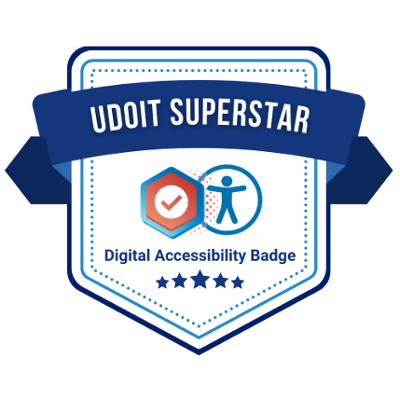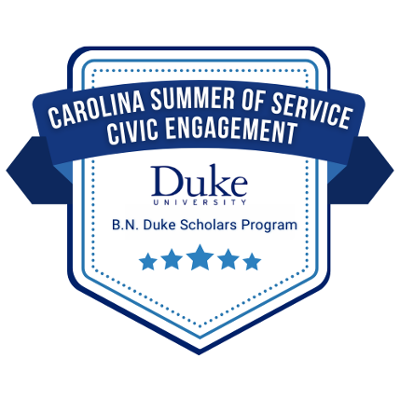With industries rapidly changing and learners demanding more flexible, targeted learning experiences, LILE is now offering alternative credentials—flexible, accessible learning experiences that offer meaningful recognition of specialized skills and competencies. These credentials are not just about innovation in form, but about rethinking how we deliver and recognize knowledge in an increasingly skills-driven world.

What Are Alternative Credentials?
Alternative credentials are smaller-scale educational experiences that focus on the acquisition of specific, demonstrable skills. Unlike traditional degrees, they are designed to be shorter, stackable, and targeted, offering learners a faster, more affordable pathway to develop competencies relevant to their goals.
LILE’s alternative credentials are primarily awarded via high-quality digital badges—verifiable, portable representations of achievement that adhere to the Open Badge standard and are issued through the Canvas Credentials platform. These badges are:
- Portable – easily shared on LinkedIn or digital portfolios
- Verifiable – rich with metadata detailing issuer, criteria, and date
- Accessible – allowing learners to gain recognition without committing to a full degree
Ashley Smith, STEM Learning Technology Analyst, leads the badging initiative at LILE and emphasizes the learner-first philosophy behind the program: “We want all learners to have the access they need… and digital badges help signal that we’re supporting everyone’s learning journey, whether they’re earning a badge for the first time or continuing to build on their achievements.”
Since launching our alternative credentials effort in Fall 2023, LILE has developed 13 badges. The three examples below illustrate the wide range of ways Duke learners and programs can engage with this model.

The UDOIT Superstar Badge
Target learners: Duke instructors
Time to earn badge: Approximately 2 hours
Among Duke’s first badge offerings is the UDOIT Superstar Badge, created to promote and recognize inclusive course design in Canvas.
UDOIT (Universal Design Online Inspection Tool) is a Canvas-integrated tool that scans course sites for accessibility issues—flagging concerns and guiding instructors on how to fix them. Every new Duke course site in Canvas has UDOIT automatically enabled, making it easy for faculty to embed accessibility best practices into their course design. To earn the UDOIT Superstar Badge, instructors run UDOIT on their course site and address the flagged accessibility issues—taking a tangible step toward inclusive teaching.
Smith explains the impact: “It’s something you can post on LinkedIn or share with your students to say: ‘My course is ready to go for everybody.’”
Learn how to earn the badge now

The B.N. Duke Civic Engagement Badge
Target learners: Duke students
Time to earn badge: One summer term
Alternative credentials aren’t just for faculty—they’re also helping students gain recognition for impactful, real-world learning. A prime example is the B.N. Duke Scholarship Carolina Summer of Service (CSOS) Civic Engagement Badge, developed in collaboration with the Office of University Scholars and Fellows.
CSOS offers B.N. Duke Scholars the opportunity to complete immersive summer internships at nonprofit organizations in North or South Carolina. The program aims to cultivate students’ civic leadership through a combination of direct service, reflection, and collaborative learning.
To earn the CSOS Civic Engagement Badge, students must:
- Participate in spring semester seminars focused on civic identity, collaboration, and reflection
- Build an ePortfolio to document and reflect on their experience
- Engage in weekly written reflections and summer cohort discussions while completing nonprofit internships
This comprehensive badge captures not only the completion of the program but also the depth of learning through structured reflection and skill development.
Karen Weber, executive director of the Office of University Scholars and Fellows, shared: “The digital badge is an incentive for students to complete the assignments, and they can add the badges to the ePortfolios they created in our program. Ashley Smith with LILE was easy to work with, helpful, and instrumental in creating and distributing our badges. We could not have done badging without her!”

The Alice M. Baldwin Scholar Badge
Target learners: Duke female-identifying students
Time to earn badge: Four years
The Alice M. Baldwin Scholar Badge is awarded to students who complete the university’s prestigious four-year women and leadership program. Named in honor of Duke’s first dean of women, the Baldwin Scholars program is an intensive academic, personal, and professional development experience for female-identified students, and the badge certifies their full participation and achievement.
Earning the Baldwin Scholar Badge signifies the successful completion of key milestones throughout a scholar’s four-year undergraduate experience. The badge provides recipients with a tangible, shareable representation of their dedication to personal growth and community impact—attributes that graduate programs and employers increasingly value.
Colleen Scott, director of the Baldwin Scholars program, explained: “I decided to request a Baldwin Scholars badge for two reasons: My students invest a significant amount of time into the coursework and activities related to the program. This is a very visible way to recognize their work. Second: it’s a great way to showcase our program to the outside world. A potential employer might be looking at a candidate on LinkedIn, see the badge, click on it to learn more, and say, ‘This is amazing!’?
The Bigger Picture: Building A Culture of Lifelong Learning
Alternative credentials reflect a broader strategy to align academic experiences with real-world skills. By developing stackable, meaningful learning experiences, LILE and our partners across campus are building a culture where achievement is visible, learning is ongoing, and skills are future-proof.
To explore badging for your course or program, visit our page on alternative credentials or email us at lile@duke.edu.

